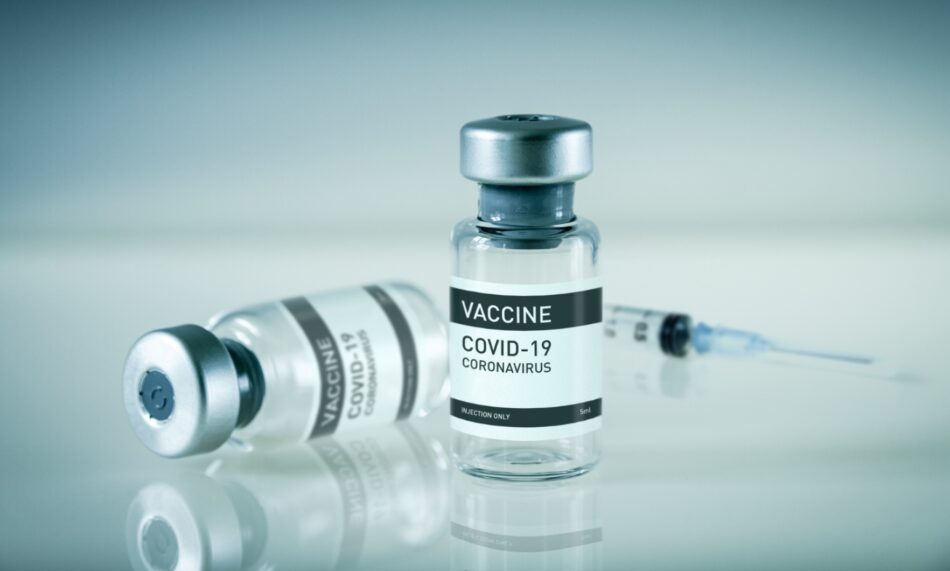Editor’s note: This article was updated on October 6, 2023 to include information on the updated Novavax COVID-19 vaccine, which was authorized by the FDA and recommended by the CDC on October 3, 2023.
As we head into fall, vaccines continue to be one of the best and safest ways to protect ourselves and our loved ones against severe COVID illness. Updated COVID vaccines are designed to target the variants currently circulating and are recommended for everyone 6 months of age and older.
In this Q&A, Andy Pekosz, PhD, a professor in Molecular Microbiology and Immunology, shares all the details about the updated vaccine, including what makes it different from previous COVID vaccines, who should get it, and whether it’s safe to get it alongside vaccines for other fall viruses like flu and RSV.
What is different about the updated COVID vaccine?
The updated COVID vaccines for the fall/winter 2023-24 season are based on a variant called XBB.1.5. They are the only COVID vaccines that are available this season. With the updated COVID vaccines, we’re back to what is called a monovalent vaccine, meaning there’s only one component—that XBB.1.5 variant—compared with the previous bivalent COVID vaccine.
Who should be getting one? And when?
It’s recommended that everyone 6 months and older get vaccinated against COVID.
For individuals 5 years and older, one dose of the updated Pfizer-BioNTech or Moderna COVID vaccine is recommended. According to updated CDC guidelines, individuals in certain risk groups may receive additional doses with their health care provider’s guidance.
The updated Novavax COVID vaccine is authorized for people 12 years and older. Unlike Pfizer-BioNTech and Moderna’s mRNA COVID-19 vaccines, the Novavax COVID-19 vaccine is protein-based. It’s an option people can consider if they are unable or choose not to get an mRNA vaccine.
For children ages 6 months to 5 years, vaccination is recommended, but the number of vaccinations are based on which vaccine (Pfizer-BioNTech or Moderna) they receive, as well as their age.
People at higher risk of severe illness should get an updated COVID vaccine as soon as possible. With the holiday season ahead of us and cooler weather driving more indoor gatherings, experts recommend that everyone who is eligible get their updated COVID vaccine by mid-October.
What do we know about how well the updated vaccine works against the variants currently circulating?
Overall, studies show that the updated vaccine is effective against the variants currently causing the majority of COVID cases in the U.S.: EG.5, FL.1.5.1, and others in the XBB family.
All viruses mutate, so while none of the variants circulating right now are exact matches to the vaccine, they’re all closely related to the XBB.1.5 strain it’s based on. Studies have shown that antibodies generated to the XBB.1.5 variant cross-react well with the EG.5 variant. The same is true for the FL.1.5.1 variant, which has been increasing in prevalence since mid-summer.
What about the vaccine’s effectiveness against the highly mutated BA.2.86 variant?
Laboratory data suggest that the updated vaccines will generate an immune response that recognizes the BA.2.86 variant. This is especially good news after the initial concern surrounding the variant’s high number of mutations. Additionally, BA.2.86 has not caused a surge of cases in the countries where it’s been detected; it appears unable to compete with the other variants currently circulating.
Is the new vaccine considered a “booster”?
The FDA has shifted from calling this a booster to calling it an updated COVID vaccine. The change in wording reflects that we’ve begun treating COVID like we treat influenza, with annual vaccination. We encourage people to get their “annual flu shot” not a “flu booster.” Calling it an updated COVID vaccine also reflects that we’re not just boosting existing immunity from previous vaccination; rather, the vaccine builds a new immune response to variants that are currently circulating.
It’s likely we’ll still see it referred to as a booster in some instances, but it’s all the same shot.
If I had COVID recently, when should I get the updated vaccine?
If you’ve recently had COVID, it’s still important to stay up to date with your vaccines. According to the CDC, you can wait three months since your symptoms began or, for asymptomatic cases, since you first tested positive.
There’s also some evidence to support waiting as long as six months after a COVID infection to receive an updated COVID vaccine. The variants that have been circulating in the U.S. this spring and summer are closely related to the XBB.1.5 variant in the vaccine, so if you’ve recently had COVID, that infection should provide strong protection from severe disease and reinfection. Waiting longer than the CDC’s guidance of three months is not recommended for high-risk groups, but it’s something people can discuss with their doctor.
If I recently received a dose of the bivalent vaccine, when should I get this updated COVID vaccine?
People 5 years and older should wait at least two months after getting the last dose of any COVID-19 vaccine before getting the updated COVID vaccine, according to CDC guidance.
Is the vaccine free?
COVID vaccines were free for all Americans throughout the duration of the COVID-19 Public Health Emergency declaration, which ended on May 11, 2023. This availability of free COVID testing and treatments has since changed, but vaccination continues to be an essential tool in protecting people from severe disease.
The updated COVID vaccine is free for most Americans through private health insurance and Medicare. Individuals who are uninsured and underinsured can receive free COVID vaccines at local health centers, pharmacies, and health care providers, through the Bridge Access Program.
You can find a COVID vaccination site near you at Vaccines.gov or by contacting your health care provider or local health department.
Are there any side effects to the updated vaccine that are different from previous shots?
No, the possible side effects reported for the updated COVID vaccine are the same as with the previous vaccines.
If I haven’t gotten any COVID vaccines yet, can I start with this one?
If you’ve never been vaccinated against COVID, now is a great time to start. People 6 years of age and older are considered up to date on COVID vaccination once they receive one dose of an updated mRNA COVID vaccine (Pfizer-BioNTech or Moderna).
People 12 years and older who have not previously received a COVID vaccine and choose the Novavax vaccine are considered up to date after receiving two doses of the Novavax vaccine, with the second dose administered three weeks after the first one.
Is vaccine-induced immunity better than immunity from infection?
Vaccine-induced immunity is better because it’s safer. When you get infected with COVID, you have symptoms from the virus that wreak havoc on your body. Whether or not you’ve been infected or vaccinated previously, the updated COVID vaccine is going to strengthen your immune responses to high levels and do so in a safe way.
We’re also at a much different point in the pandemic than we were when the first vaccines rolled out in 2020. Exposure levels to COVID vary significantly: Some people may have gotten their last vaccine two months ago or 10 months ago, while some are still not vaccinated; some people still haven’t gotten COVID, while others have had it three times or more.
That’s all to say that we’re now vaccinating a population that has some existing immunity, but ultimately updated vaccines will provide the safest and most effective protection against the currently circulating variants.
Can you get the flu shot and the COVID vaccine at the same time?
Yes. There are no downsides to getting both at the same time, and in fact, studies have shown that people who spread out their vaccines often don’t follow through with getting both vaccines. We’ve also seen that the immune response generated by each vaccine does not change based on whether they are administered at the same time or separately.
It’s important to remember that many of the same populations at high risk of experiencing severe illness from COVID are also at high risk of severe influenza. Especially for these vulnerable populations, it’s a good idea to time your vaccines together.
If you’ve been recommended to get the new vaccine for respiratory syncytial virus, can you get your COVID and RSV vaccines at the same time?
Since this is the first season the RSV vaccine is available, there have not yet been formal studies into co-administering the RSV vaccine with either the flu or COVID vaccines. That said, there should be no reason why you can’t get the RSV vaccine at the same time as the COVID vaccine.
It’s important to remember that RSV vaccines are not broadly recommended for everyone. They are approved for people over age 60, and individuals should discuss with their doctor whether it’s right for them based on their personal risk factors.
If the RSV vaccine is recommended for you, it’s best to prioritize your vaccine schedule based on the viruses that are currently most prevalent. Right now, in mid-September, RSV cases are starting to rise in some parts of the U.S., but we are not yet seeing much flu transmission. So a good option would be to get the RSV vaccine and updated COVID vaccine as soon as possible, and if need be, you can wait until late September or early October to get your flu shot.
Aliza Rosen is a digital content strategist in the Office of External Affairs at the Johns Hopkins Bloomberg School of Public Health.

